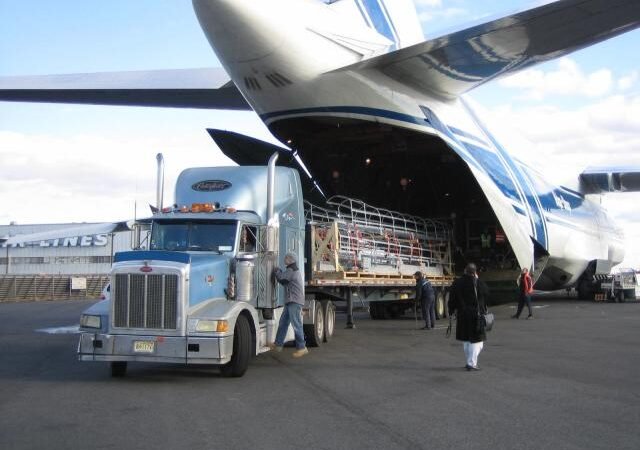Exporters and importers sending and receiving cargoes through the Murtala Muhammed International Airport terminal (MMIA) Lagos have seen a stop in their various businesses in the last one week over the strike action of customs agents.
The Association of Nigerian Licensed Customs Agents (ANCLA), MMIA airport chapter, withdrew their services on April 25th of this year after Nigerian Aviation Handling Company (NAHCO) and Skyway Aviation Handling Company increased ground handling charges by rate of 100 percent.
A visit by news agencies on Tuesday to the export wing of the cargo handling shed at NAHCO showed several cargoes piled up with perishable goods (goods that can spoil) at the facilities.
Speaking with one of the exporters at the terminal, she lamented how she was supposed supposed to export fresh vegetables to London last week. She had paid for the clearance and expected the vegetables would have arrive in London the next day only to be told that customs agents were on strike and the products are still at the cargo shed,” Ogonna Felicia, an agro cargo exporter, told news agencies on ground.
Felicia said she usually exported agro produce at least twice a week to London but in the last one week, business has been shut down because she has not been able to export any of her produce.
“One of the reasons my friends and I started this export business was because we got assurances from the Nigerian Export Promotion Council that export will be made seamless for us. This is so discouraging for young entrepreneurs, especially at a time the government is looking to grow the non-oil sector of the economy,” she added.
A spare parts dealer who is also affected by the strike action, told news agencies that his customer had ordered for some spare parts, which arrived in the country a week ago but he hasn’t been able to access the goods because of the strike action.
“Perishable cargoes are laying waste at the facilities. Those who were not able to take their products back abandoned them. The farmers already know the situation and know they can’t keep their goods at the warehouse. So, for now, no exporter is bringing perishable goods,” he said.
During a press conference last week, the ANCLA vice president said the association viewed the increase as obnoxious and highly insensitive and has held series of meetings with both ground handling companies, pleading with them to reduce the tariff but to no avail.
He said the increment will send many customs agents out of business. “That is why the agents are pleading with the relevant agencies and stakeholders to intervene, so that it would not generate a crisis that would be difficult to control.”
Seyi Adewale, chief executive officer of Mainstream Cargo Limited, said the ANCLA strike will have a significant long-term negative impact on aviation cargo or trade services to Nigeria.
Adewale said airlines may choose to aggregate their aircraft spares in another African country and turn it into its ‘repair and return’ hub, adding that this also has implications for promoting the building of MRO in Nigeria.
Mr. Segun Ajayi-Kadir, director-general of Manufacturers Association of Nigeria, said in a statement that the implications of the increase in excise duty for 2023 will reduced production volumes with its attendant result on downward trend in capacity utilization; increased illicit trade in some of the affected products; and erosion of members’ market share and revenue, especially following continued devaluation of the naira against major currencies.
Ajayi-Kadir said the increase will lead to inflation and increased security challenges faced around the country; freeze on employment and redundancies in the manufacturing industry and squeezed margins as its members are unable to pass additional costs to consumers by way of higher prices, given their eroded income and dwindling purchasing power.
“Apart from the above challenges faced in the business environment, manufacturers also have to contend with currency devaluation and increasing inflation resulting in higher cost of production as our members have little to no access to foreign exchange at the official window and have to resort to the parallel market at an extra cost of around N300 to $1.00,” he said.
He recommended that the government should maintain the status quo regarding the already government-approved excise duty increases on these items in the three-year roadmap as contained in the 2022 Fiscal Policy Measures.

Leave a Reply